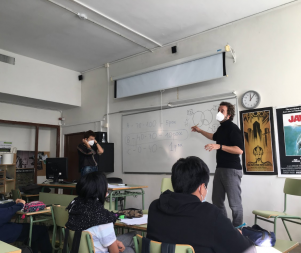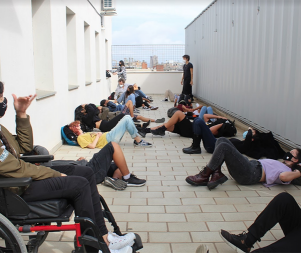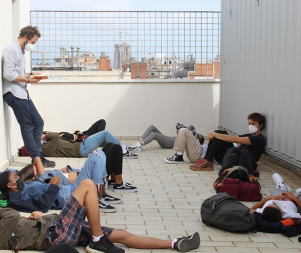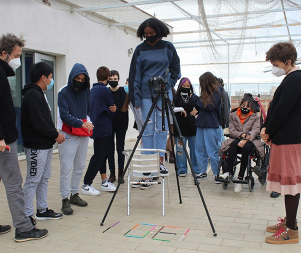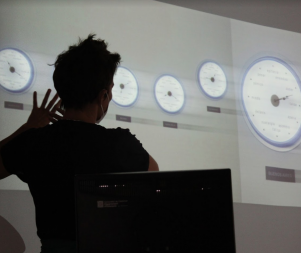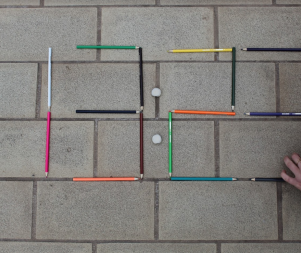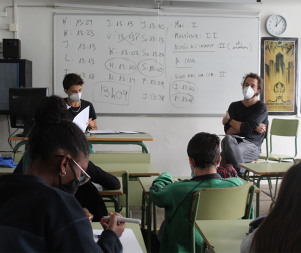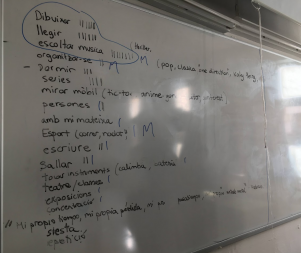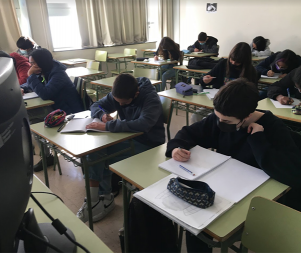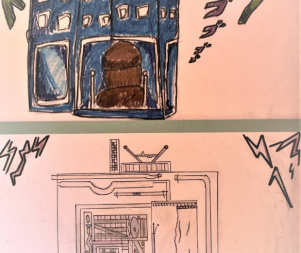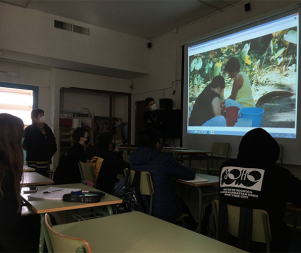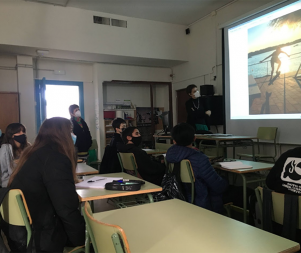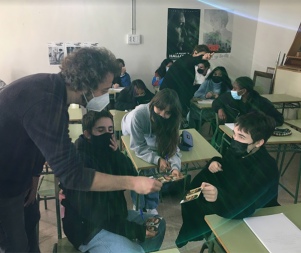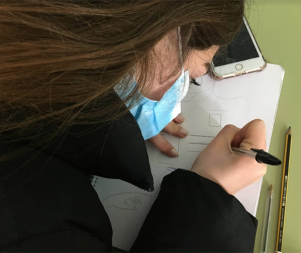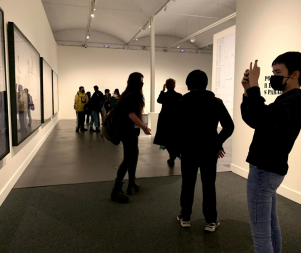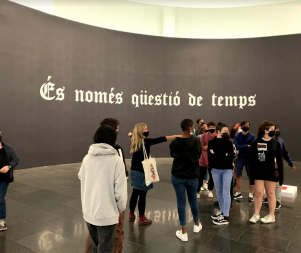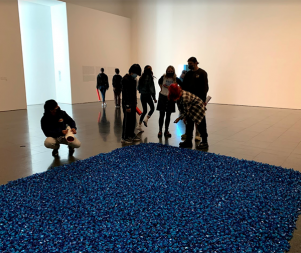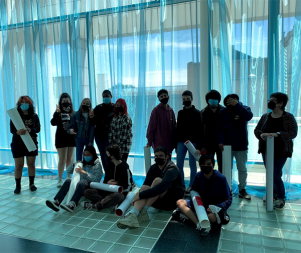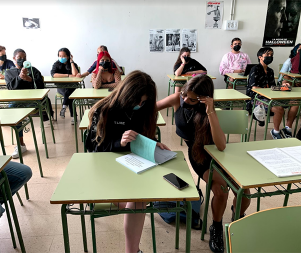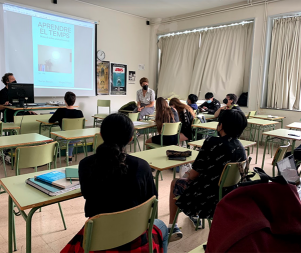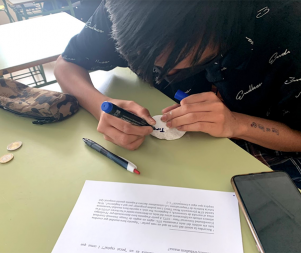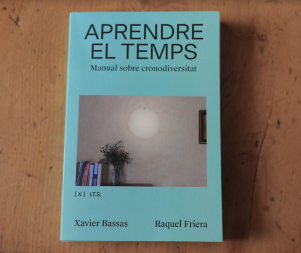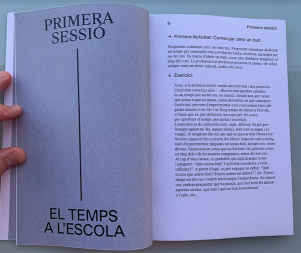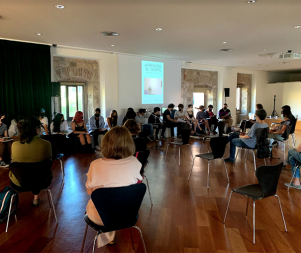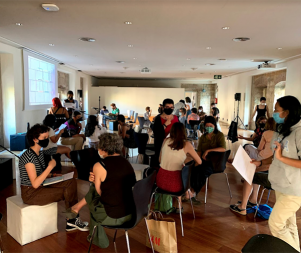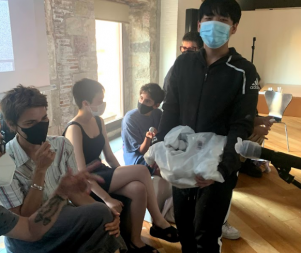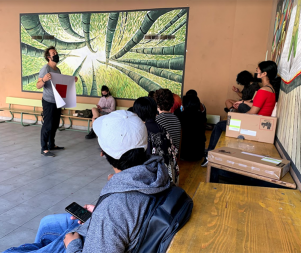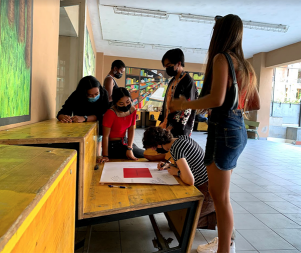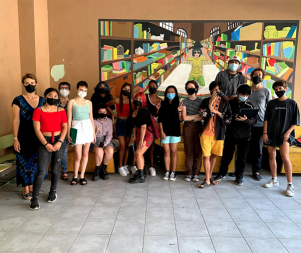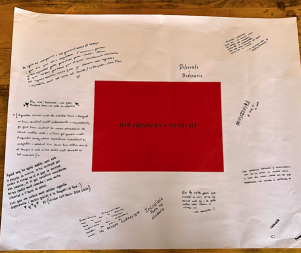- 14th EDITION 2022 / 2023
- 13th EDITION 2021 / 2022
- 12th EDITION 2020 / 2021
- 11th EDITION 2019 / 2020
- 10th EDITION 2018 / 2019
- 9th EDITION 2017 / 2018
- 8th EDITION 2016 / 2017
- 7th EDITION 2015 / 2016
- 6th EDITION 2014 / 2015
- 5th EDITION 2013 / 2014
- 4th EDITION 2012 / 2013
- 3rd EDITION 2011 / 2012
- 2nd EDITION 2010 / 2011
- 1st EDITION 2009 / 2010
Raquel Friera i Xavier Bassas IN RESiDENCE at the School Poeta Maragall
CREATION PROCESS
The entire work process tackled by the artists in the classroom was associated with a clear purpose: question the chrononormativity model in which we live. This analysis was based on experiences in which we reflected on our relationship with time and where we experience other ways of relating to it, opening ourselves to the meaning and realising its impact on our ways of living. Throughout this process we were accompanied by texts, short films, works by contemporary artists, exhibits, etc., which formed the basis for conversations while opening the space to chronodiversity.
Time at school and wasting time
The artists were presented through a very simple action, proposing an activity and remaining in absolute silence, which was not broken until a student asked,
“What does wasting time mean?”. We open the conversation based on the vision of “On wasting time” by Raquel Friera.
The clock
We continued opening up the conversation referring to specific experiences that created questions about what we take for granted and what we haven’t stopped to think about. Is the measurement of time a convention?
To further expand on this thought, we looked at works of contemporary art that have reflected on the clock and we made a version of one of them.
The time machine
In some of the sessions we brought in science fiction as a space that provided us with new dimensions from which to think about our reality. In this case, through short films, clips from science fiction films and literary excerpts, we analysed what imagery there was about the idea of travelling through time and the time machine.
Mash-up session: The activism of time
We reviewed and made a collection of idioms that talk about time. What are these idioms trying to say? Through their analysis, we once again began to think about an intervention on the school's façade.
We also participated in the school's online staff meeting for the second term, during which the students shared the most significant aspect of the Creators In Residence experience.
We visit exhibitions that talk about time
During the final part of the course, we visited two exhibitions to continue talking about and questioning ourselves about time based on the work of contemporary artists. “So lazy. An eulogy to squandering” at CaixaFòrum.
Barcelona, and “Félix Gonzalez-Torres. Relationship policy”, at the MACBA.
Manual on chronodiversity
Once we decided that our time machine would be a publication, we contacted Todojunto, who would do the editorial design of the publication. At the same time, we collected everything on the process of the course to have a look at the content, and the students together with the teachers collected the materials produced during the whole course to select those that would go into a manual.
The presentation of the manual
The presentation of the manual took place on the afternoon of Thursday 10 June, at the MACBA Convent Auditorium. The session was to be a new act of time activism to share the questions that had accompanied us during the course with all those attending.
Closing session
To close, we looked for a date outside the schedule so that we could all attend. During the session, we performed an action that we had pending: make a collection of musical topics.
During the same session, the artists brought a poster from the Félix Gonzalez-Torres exhibition, upon which a phrase was written WIR ERINNERN UNS NICHT, which means WE DO NOT REMEMBER.
Around this poster, they asked the students to individually go up to the poster and anonymously and sincerely write what the course had meant for them.

